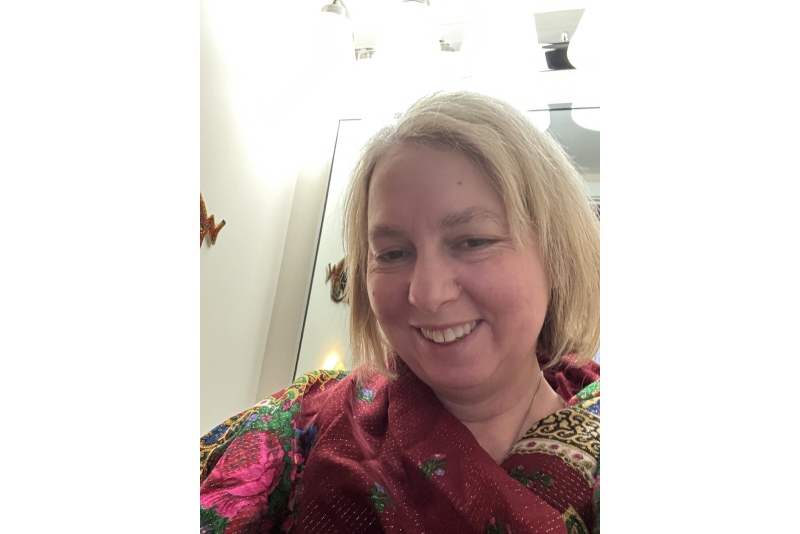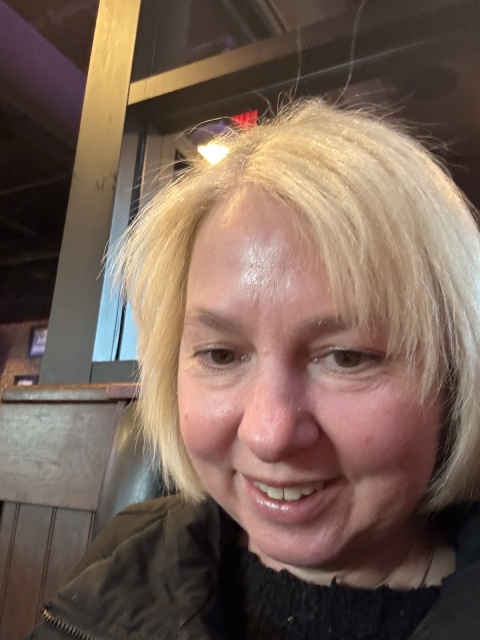Healing, Hope, and Horses: Dr. Christine Charyton’s Holistic Journey from Neurology to Nature

Human Introduction: A Day in the Life of a Psychologist, Farmer, and Leader
Dr. Christine Charyton is on the move before the sun rises over Ohio. At Veselka Farms, she may be strolling among rows of heirloom crops on some mornings, assessing the leaves that have been kissed by dew and verifying irrigation schedules. On others, she may be reviewing EEG scans from one of her ongoing neurological studies or preparing data for a workshop on creative cognition. She may be recording content for her educational podcast, advising a national think tank on innovation policy, or mentoring a young woman in STEM later in the day. Her life combines advocacy, science, nature, and a very personal mission.
The narrative of Dr. Charyton is one of multi-layered purpose. She has not only worked in engineering, neurology, and cognitive psychology, but she has combined them into a lifestyle rooted in healing, empowerment, and grassroots innovation. Her days reflect a devotion to both the human brain and the human spirit.
Mind Meets Soil: The Founding of Veselka Farms and Its Mission
Dr. Charyton made a transformative choice in the midst of her successful academic and consulting career: she established Veselka Farms, a sustainable agricultural enterprise motivated by community and resiliency. Veselka Farms, which takes its name from the Ukrainian word for “rainbow,” embodies her belief that intentionality, patience, and a deep understanding of systems thinking are necessary for regeneration, whether it be of the soil, the mind, or society.
The farm is a living laboratory where Dr. Charyton uses the concepts of ecological systems theory and cognitive flexibility, not a place to escape from her research. Soil chemistry, crop cycles, and weather patterns all serve as metaphors for emotional healing, mental flexibility, and resilience. She provides information on farming methods, agricultural markets, and ecological wellness on VeselkaFarms.com, creating a welcoming environment for creative growers and regular nature enthusiasts.
Additionally, she collaborates with youth programs and educators to provide workshops that combine soil science and personal development. In one project, she used her background in neuroscience to teach underprivileged high school students about regenerative agriculture and goal-setting techniques. She frequently observes that “the soil doesn’t lie”—and that, with the right care, neither does the mind.
Neurology and Healing: How Her Epilepsy Research and Music Therapy Help Real People
The practical, therapeutic implications of Dr. Charyton’s neurological research extend beyond published papers and continue to shape clinical practice. She investigated how auditory stimuli—particularly music with varying rhythmic and tonal structures—stimulate various brain regions in epileptic patients through controlled EEG studies carried out across university labs and clinical collaborations. Real-time brainwave monitoring during jazz improvisation sessions was used in these studies to compare alpha, theta, and beta wave activity.

In a number of instances, her team discovered that improvisation and music listening decreased aberrant spike-wave activity in the temporal lobe, which is commonly linked to epileptic episodes. This resulted in the development of a neural entrainment protocol that used personalized sound patterns to help patients enter a more neurologically stable state. This method garnered attention in cross-disciplinary conferences, where clinicians and cognitive scientists began to explore music not just as art or distraction—but as medicine.
Dr. Charyton has long studied epilepsy and how music affects the brain. The temporal lobe, which is in charge of processing auditory information and regulating emotions, shows distinct activity in both musicians and people with epilepsy, according to her research using EEG technology. Because of this overlap, she created therapeutic frameworks that use music as a tool for empowerment as well as treatment.
Her findings showed that patients with epilepsy experienced synchronized brainwaves in response to rhythmic, jazz-based improvisation, which matched patterns observed in musicians with training. Patients were able to see their neurological differences as variations with potential rather than as deficiencies thanks to this correlation. Her research has been published in academic journals and at multidisciplinary conferences, and it still influences treatment strategies that take advantage of the brain’s nonlinear pathways to healing.
Beyond epilepsy, Dr. Charyton applies this research to broader mental wellness. She consults with music therapists, hospital units, and public health organizations to implement customized sound-based protocols for stress relief, trauma recovery, and emotional regulation. Her guiding principle is simple: healing is more effective when the brain is engaged creatively.
Creative Currents: Her Work with CEDA and Empowering Young Minds in STEM
Dr. Charyton is renowned in academia and business for creating the Creative Engineering Design Assessment (CEDA), a tool that gauges the potential for innovation through imaginative problem-solving scenarios. CEDA was first created for engineering programs at universities, but it has since been modified for use in workforce development, gifted education, and high schools.
Dr. Charyton’s personal experiences navigating male-dominated fields are the foundation of her passion for empowering young people. She promotes CEDA as a way to level the playing field, highlighting the fact that socioeconomic status, gender, or race do not limit creativity. She assists students in discovering their “innovation identities” through mentorship programs and nonprofit partnerships, giving them the self-assurance and mental skills they need to pursue STEM careers.
CEDA has also been implemented by companies looking to identify hidden talent within their ranks. By measuring traits like cognitive risk tolerance and ideational fluency, the tool provides a new language for recognizing and cultivating creative leadership from unlikely sources. For Dr. Charyton, the broader goal is cultural: to make innovation accessible, measurable, and inclusive.
Presidential Candidacy: An Unconventional Campaign Rooted in Values and Science
Dr. Charyton entered an independent presidential campaign in 2024 and 2028. Her campaign platform, which focuses on data-driven governance, STEM education reform, and mental health access, is as out of the ordinary as her career. Her approach was centered on town halls, webinars, and scientific discourse rather than celebrity endorsements or sound bites.
She suggested incorporating creativity-based learning models into K–12 education and advocated for national mental health initiatives based on cognitive neuroscience. Her policy views on integrative health, neuroplasticity, and decision-making psychology were highlighted on her presidential website. Despite being grassroots in scope, her candidacy was full of ideas, presenting a leadership vision based on evidence, healing, and group imagination.
Her activism extends to international issues as well. She has advocated for Ukrainian-American solidarity, using her platform to raise awareness and encourage diplomatic support in times of crisis. Her approach to global politics is similarly shaped by systems thinking and human dignity—two constants in her personal and professional philosophy.
Personal Passions: Memoir Writing, Horses, and Mindfulness
Despite her long list of qualifications and work obligations, Dr. Charyton has a profound understanding of the healing potential of common pleasures. Her journey through science, service, and self-discovery is being chronicled in a memoir that she is currently working on. She claims that the story will weave together her experiences with farming, faith, and epilepsy research, with each chapter offering a contemplation on overcoming complexity via ingenuity.
Spending time with horses, who she describes as intuitive animals that reflect emotional energy, is one of her greatest pleasures. In order to help participants rediscover their intuition and explore vulnerability in a secure, embodied manner, she frequently incorporates equine interactions into leadership workshops and mindfulness retreats.
Her wellness practice also includes guided meditation, creative visualization, and biblical reflection—offering a spiritually grounded approach to mental and emotional resilience. For Dr. Charyton, success is not a matter of accolades but alignment: between one’s values, passions, and service to others.
Conclusion: A Message to the Next Generation of Creators and Change-Makers
Dr. Christine Charyton leaves a strong legacy of integration as she pursues her holistic path. She exemplifies a leadership style that transcends organizational boundaries: one in which dreams and data collide, where daily practice is informed by neurological insight, and where every career path offers a chance to sow hope.
She issues a bravery call to the upcoming generation of innovators: embrace who you are. Have faith in your ability to think differently. Make use of your creativity for inclusion, empathy, and healing in addition to invention. The future is created by those who have the courage to envision it in a different way and the audacity to make it a reality, whether in a classroom, a lab, or a peaceful field of horses.